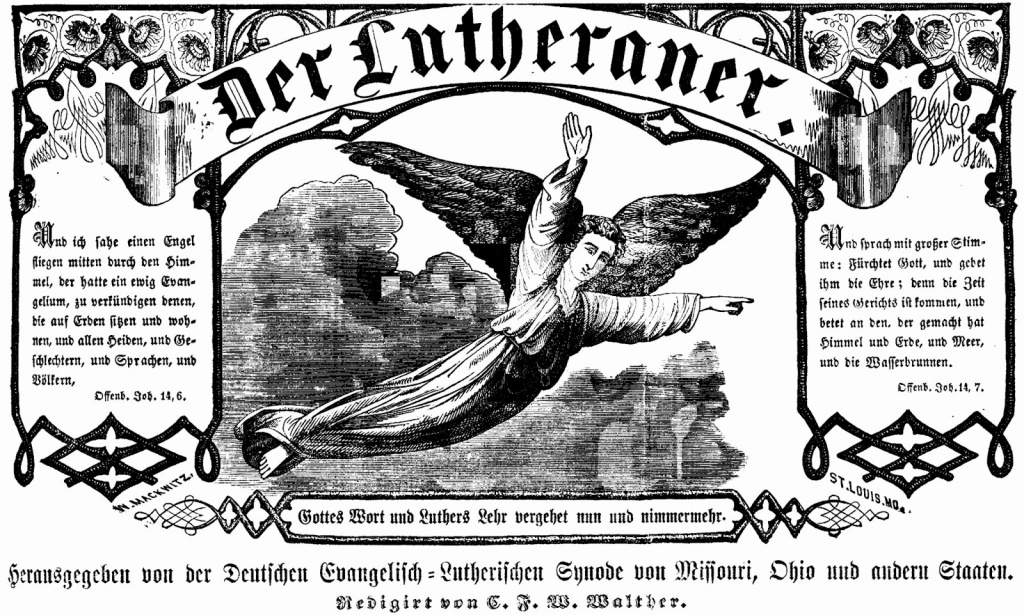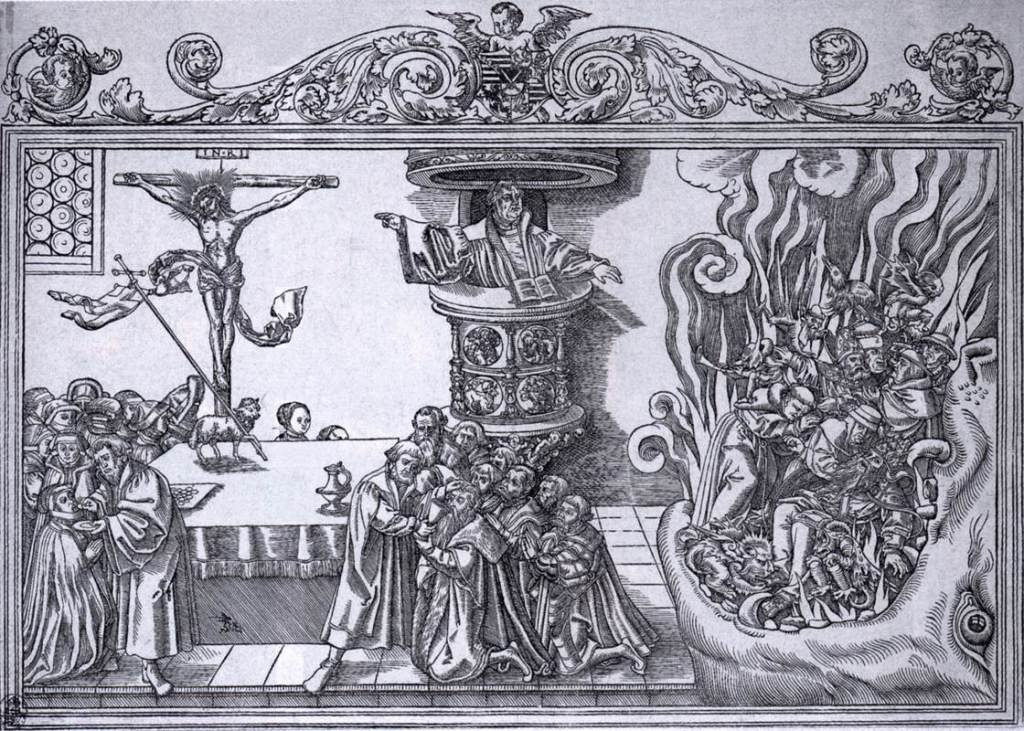In their (as I presently assume) godly desire to see churches follow the Word of God on the issue of race, some who call themselves Lutherans have rashly made complete condemnations (e.g. claiming they deny the resurrection) — assigning the disfavor of God on those of whom it must be said, they are beloved children of God. And this is no surprise, for these men have in many other places (e.g. the proper place of women) judged men much too quickly, sending them — if they could — to Satan.
These men, by their unqualified declarations, arrogate to themselves the power to send men to hell for believing wrongly on non-fundamental doctrines — and they explicitly include the weak believers in their condemning; however, they themselves do not consider the doctrines on which they err. They all err regarding the doctrine of the Church, which they must with these impudent condemnations. And most of them (e.g. Corey Mahler) err on the matter of adiaphora, by subscribing to the statement: Leitourgia Divina adiaphora non est. Also, some of them have publicly taught (e.g., here) contrary to Scripture on the Antichrist, saying that there will be a personal, final Antichrist, which is not the pope.
However, for these and similar errors I would not plunge them into hell, for they have not been sufficiently rebuked from the Scriptures. And God would that they might extend this charity to those who err regarding race.
That not all deviations from the clear Word of God — those that are done out of weakness — do actually damn I would hope needs no substantiation in the Evangelical Lutheran Church. However, because some have shamefully appealed to perverted Scripture passages to establish their wicked opinions, a substantiation of this truth — that one may err and still not be a heretic — must, it seems, be provided. And as true evangelicals we will now go “to the Law and to the testimony” (Is. 8).
In Acts 15, there is a most illuminating account, describing the spiritual state of those who insisted upon the Law of Moses, saying that those who did not obey this law could not be saved. This was obviously a fundamental error — one which, taken to its logical conclusion, results in a denial of justification, the central article of the Christian faith, and thus places one extra ecclesiam. But, and we have the wisdom of the Holy Spirit to thank for this, these men are described by the Scripture as “believers” and “brothers,” indicating that they are not condemned by God. In addition to this, as is clear from the account, these men took part in the debate concerning the salvation of the heathen. Thus it is clear from the Scripture that men may err even in a fundamental article and still be saved — this only as long as they are not obstinate, refusing to submit to the Word of God in Christian humility.
Now, if one may err regarding the salvation of non-Jews — which must, if one acts logically, cause one to reject the Christian faith — and still be saved, then how, I ask you, can one possibly condemn to hell the many faithful who have erred on the non-fundamental article regarding race? Dear God, grant that I may never have such impudence to claim for myself the glory which You give to no other in this way, that I would (if it were possible) plunge into hell those whom You have elected from eternity. Amen.





